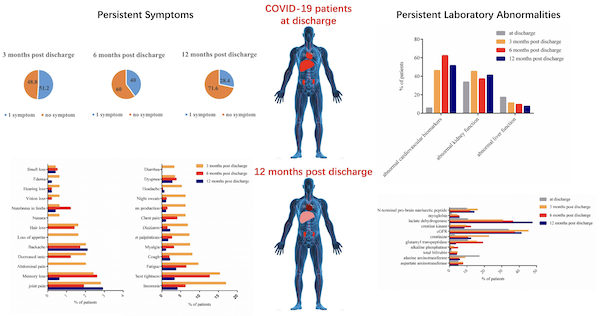The wisdom to quit is all we have left.
"come quickly, I am tasting the stars!"
Dom Perignon
You imagine it can't happen to you, and then it does.
News is something somebody doesn't want printed; all else is advertising.
For years, on and off, I have woken in the dark, shouting out loud, stricken with horror at the impossible fact of death. It has been my most abiding and paralyzing terror.
But it was Stu who banished it from me. At the hospice he looked me in the eye, very seriously, very quietly, and said, of what was happening to him. "It's okay. It's okay." I knew it was not, that what he was doing was reassuring me and it was an act of such generosity that for a while I couldn't find anything strong enough inside of me to reply. "It's okay," he said. "It's not hard.
Some more great tips from my favourite student doctor – Zachery Dereniowski in Sydney (KR Connect, November 8th, 2020).
If ...
- You seem more irritated or reckless than usual, which you know is really out of character ...,
- You notice you’re going quieter and starting to withdraw from others ...,
- You’re experiencing turbulent change – maybe in employment, income, your personal life ...,
- You help others, but appear to be distant, on the outer ...
... Check in with yourself (and with a loved one) and replace these feelings with a commitment to positivity (KR Connect, May 24th, 2021).
You are more than enough.
Commit to Happiness.
Make Happy Choices.
Jim Gandre shares key leadership principles
Facial Recognition Technology: Current and Planned Uses by Federal Agencies GAO-21-526 Published: Aug 24, 2021. “Recent advancements in facial recognition technology have increased its accuracy and its usage. Our earlier work has included examinations of its use by federal law enforcement, at ports of entry, and in commercial settings. For this report, we surveyed 24 federal agencies about their use of this technology.
- 16 reported using it for digital access or cybersecurity, such as allowing employees to unlock agency smartphones with it
- 6 reported using it to generate leads in criminal investigations
- 5 reported using it for physical security, such as controlling access to a building or facility
- 10 said they planned to expand its use…”
Twelve-month systemic consequences of COVID-19 in patients discharged from hospital: a prospective cohort study in Wuhan, China(accepted manuscript) Clinical Infectious Diseases. From the Abstract: “Physiological, laboratory, radiological or electrocardiogram abnormalities, particularly those related to renal, cardiovascular, liver functions are common in patients who recovered from COVID-19 up to 12months post-
Twelve-month systemic consequences of COVID-19 in patients discharged from hospital: a prospective cohort study in Wuhan, China(accepted manuscript) Clinical Infectious Diseases. From the Abstract: “Physiological, laboratory, radiological or electrocardiogram abnormalities, particularly those related to renal, cardiovascular, liver functions are common in patients who recovered from COVID-19 up to 12months post-discharge.”


They Offered Early Retirement To Faculty. Here’s Why I Took It At 51.
Chronicle of Higher Education op-ed: They Offered Early Retirement. Here’s Why I Took It at 51., by James M. Lang (Assumption College):
[O]ver the past few years I have felt an increasing sense of imbalance in my professional life. My primary passion has always been writing. I write out of a compulsion that I don’t fully understand, but that gives my life purpose and joy. ...
I’m happiest when I am writing, and I am convinced I have many more books left in me. But with each passing year, as my teaching, service, and administrative duties grew, I seemed to have less and less time to write.
I thought a lot about how to make more time for it but couldn’t see any easy remedies. My university paid me a salary, after all, and had given me a good life. My first responsibilities had to be toward my students, my colleagues, and my institution. Sure, research and writing are part of my job — but a relatively small part at a teaching-intensive institution like mine.
In short, I began to feel less like a plant blooming in a sunny garden and more like one fighting for sun in a shady corner of the yard, sending out tendrils and vines in search of new soil and light. But I had been in that container for so long I couldn’t see how to uproot myself and embark upon a different kind of professional life.
Along came the pandemic. Strange how a global health crisis can clarify the mind: I have only so many years left on the planet. Someday my back will indeed begin to stiffen, and all the yoga in the world won’t turn back time. Someday my passion for writing may diminish. And someday the ideas and words may not flow as easily as they do now.
In April I received an email letting me know that — due to a combination of age and years of service — I was eligible for an early-retirement package.
When the email arrived, I dismissed it. I’m too young for that, I thought. But I kept it in my inbox. For two or three weeks I thought about the retirement package, talked it over with my wife, and thought about it some more.
And then, dear reader, I took it.
On August 31, 2021, I will enter a new season of life, one in which the balance of my work will shift drastically — I’ll be writing full time, and teaching as an adjunct. ...
Between my wife’s income, the early-retirement package, and the income I earn from my books and speaking engagements, we have enough to live comfortably for at least a year, maybe two. Beyond that, I’m not sure what will happen. If the writing goes well, I might continue to balance a writing life with adjunct teaching.
But part of me wonders if I will miss being fully embedded in an institution, and begin to long again for the opportunity to interact on a daily basis with really smart and wonderful colleagues, in office-hour chats and at academic ceremonies and even, God help me, in committee meetings. I’m leaving open the possibility that in 2022 or 2023 I might poke around and see whether I can find a half-time position as a lecturer somewhere or as a faculty-development consultant in a teaching center.
For now, though, I’m eagerly awaiting the formal start of my “retirement.” I made my decision in May, with much anxiety and trepidation, and every day since I have been more and more convinced that I did the right thing. I’ve been planted in a traditional academic life for a very long time, and I bloomed happily there. But the world is full of gardens, and I’m ready to explore some new ones.
